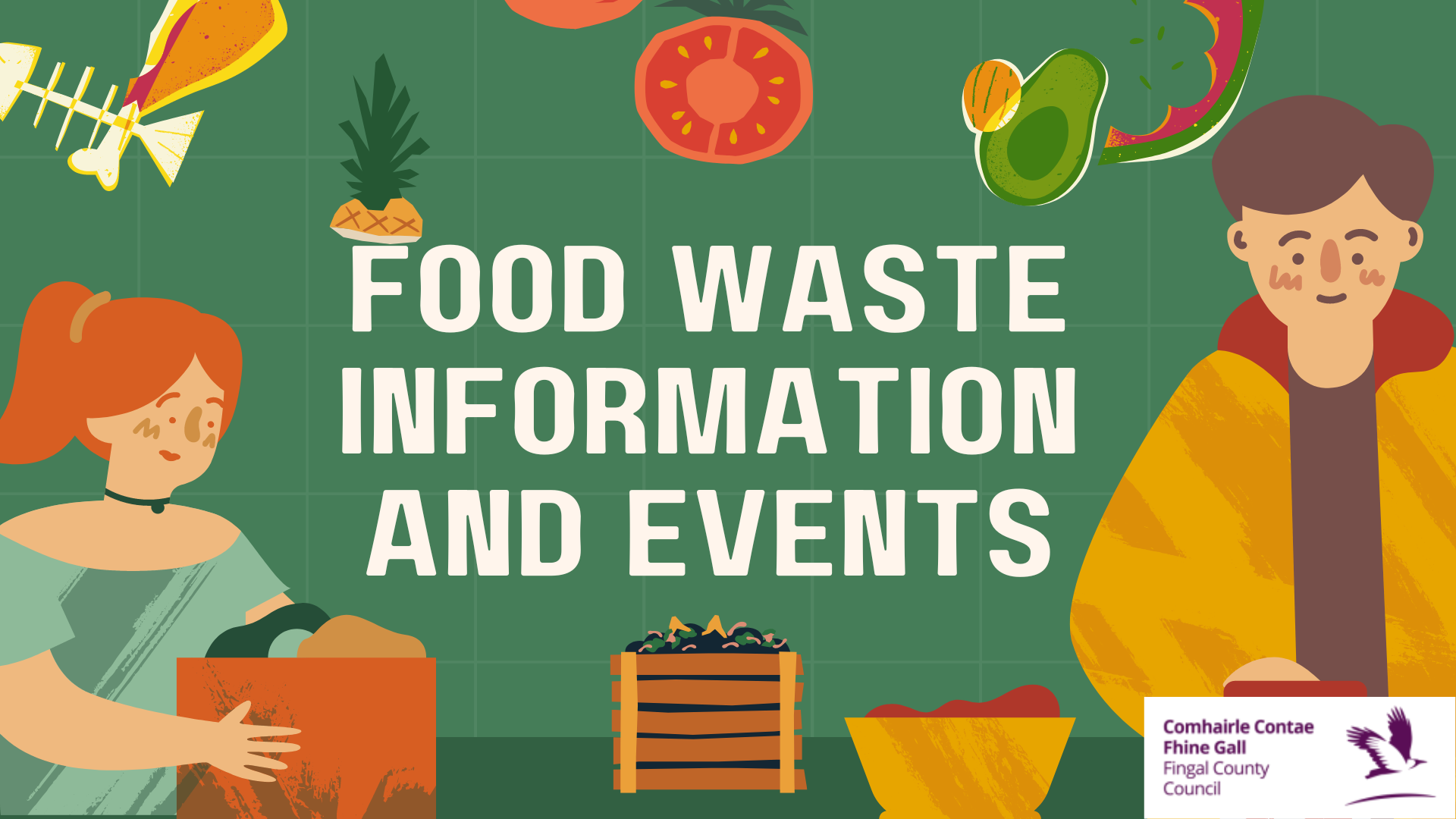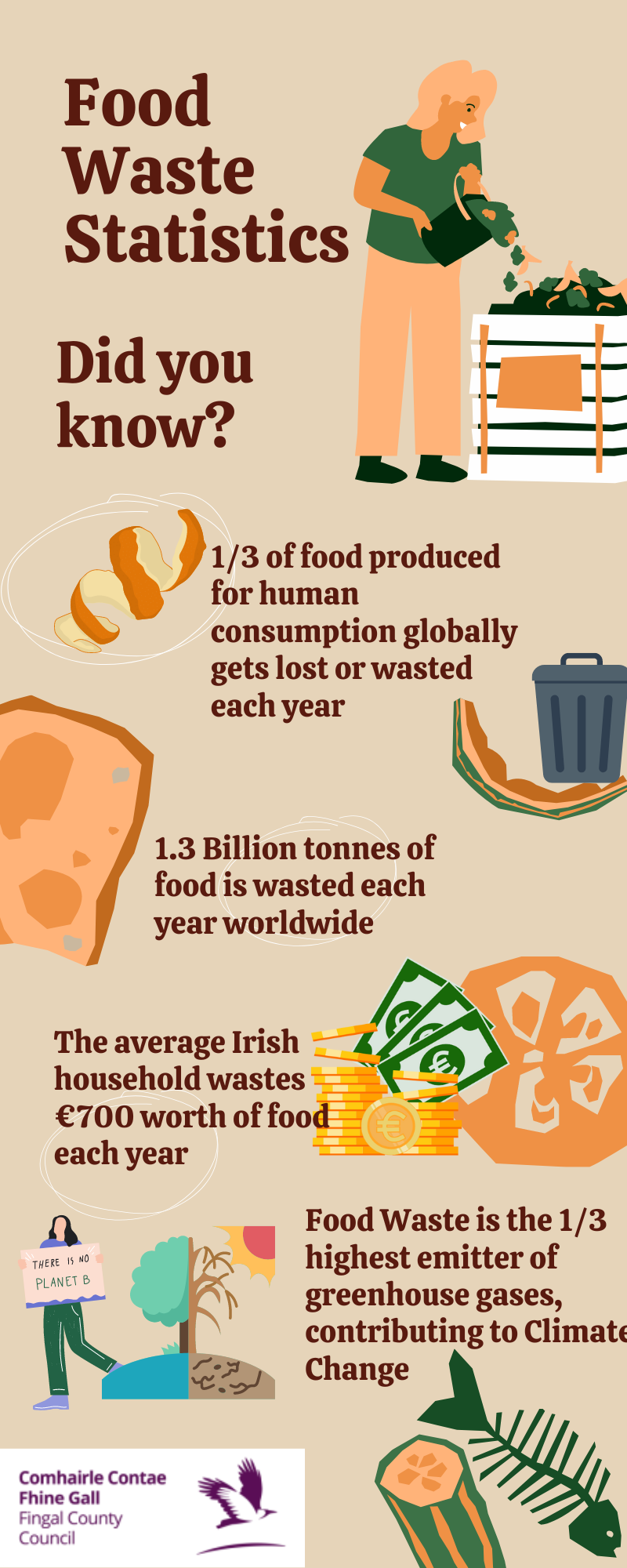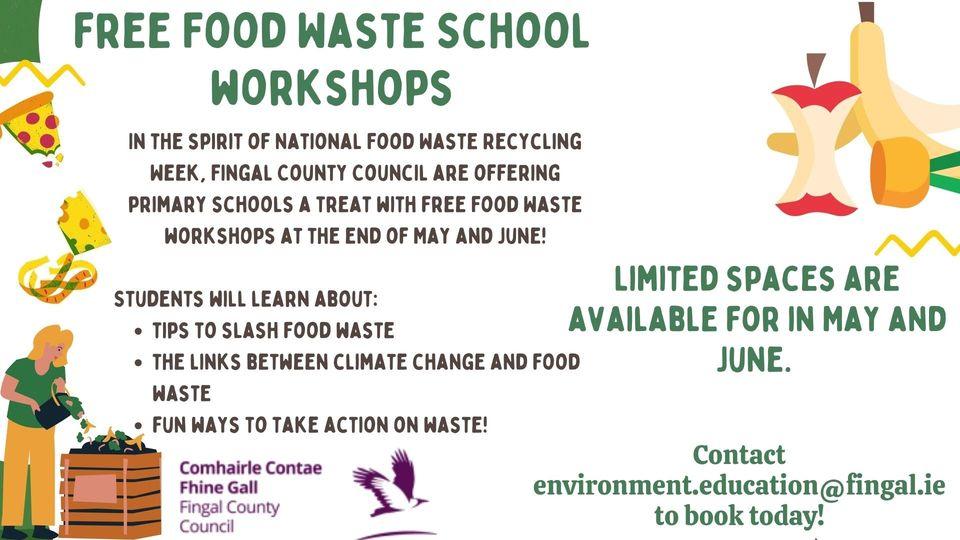Food Waste Prevention, Management and Upcoming Events

Why Food Waste Matters
Why Food Waste Matters: Did you know that approximately one-third of all food produced for human consumption is wasted globally each year? This not only squanders precious resources like water, energy, and land but also contributes to environmental degradation and climate change.

National Food Waste Recycling Week 2024
Now in its second year, the National Food Waste Recycling Week will run from the 2nd until the 9th June 2024. This campaign, managed by MyWaste.ie will provide practical advice, with easy to follow hints and tips to encourage everyone to recycle more of their food waste.
In Ireland, we waste about 800,000 tonnes of food each year, according to current best estimates. Growing, processing and transporting food uses a huge amount of resources, such as land, water, energy and fertiliser. If food is wasted, these resources are wasted too. The EPA estimates that food waste costs the average Irish household about €60 per month or €700 per year. That’s an annual national cost of €1.29 billion.
This year’s campaign aims to ensure that people understand that food waste needs to be fully separated from all packaging such as plastic or other containers to prevent contamination at the compost and anaerobic digestion facilities leading to higher quality recycling.
Separating food waste is a positive climate action that we can all make
The overall aim of the campaign is to generate awareness of the role of food waste recycling in diverting this valuable resource from landfill and allowing it to be transformed into renewable energy and fertilisers for horticulture and agriculture use in Ireland. This will have a lasting impact as it will create green jobs here now and into the future. The campaign is being managed by Ireland’s three regional waste management planning offices* and funded by the Department of the Environment, Climate and Communications.
Properly recycled food waste can be used to produce energy through anaerobic digestion and to produce clean, organic fertiliser.
Upcoming Events
